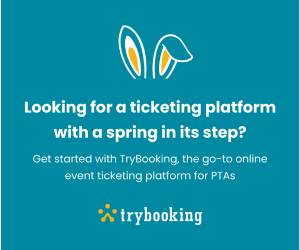Looking for an entertaining event to gee up your parents? Look no further! Race nights are an entertaining way to get people together, promising a lively night of shouting as participants cheer their horses over the finish line!
There are two main ways of running this event: either by paying a specialist to deliver the entertainment for you, or by purchasing a DIY race-night pack online. Funds are raised by charging an admission fee, offering a hot meal, running a bar, seeking sponsors, selling jockey slots and from bets in the tote.
Step-by-step
- Two months before: Choose a date and time for your event, book your school hall and send out a ‘save the date’ notification to parents. Recruit volunteers – as you will require a compere on the night, plus people to run the tote, serve food and drinks and sell raffle tickets. Approach local businesses about sponsoring each round and ask whether they can also donate prizes for the winners – explain exactly what coverage they will get in return (i.e. announcements by compere, details on race cards, coverage in letters home to parents, etc). If running a raffle or auction, seek prizes for these too. Decide whether you will serve food, and if this will be prepared on the premises or delivered by a local restaurant. If providing food, include this in the ticket price and invite people to pre-order, noting any dietary requirements. Alternatively, ask guests to bring their own food and provide extra rubbish bags. Start selling tickets for £3-5 each, or up to £10 if providing food. Encourage class reps to fill a table.
- Four weeks before: Make sure you have a PA system, microphone, DVD player/projector and screen, and confirm that you can borrow tables and chairs from the school. Spread the word using posters, letters and social media. Order your race-night kit or confirm the event details with your supplier.
- Two weeks before: Finalise any refreshments and food that you’re providing and agree who will be in charge of buying the stock and serving on the night. Any sale or supply of alcohol, even if included in the ticket price, will require a TEN. Submit an application to your local council at least ten working days before your event.
- On the day: Pick up your cash floats and arrive early to set up your venue. If running a raffle or auction, encourage guests to buy tickets or place bids as they arrive, then announce the winners at the end. Once guests have arrived, get your compere to explain how the evening will work. Present prizes and cash winnings at the end of each race. At the end of the night, draw the raffle, if running one, and encourage everyone to put betting slips and other rubbish in the bins provided!
- After the event: Have a post-event debrief with your team to discuss what worked well and what might need tweaking. Cultivate relationships with sponsors by sending them thank-you letters noting how much the event raised and how this has contributed towards your fundraising goal.
Download a print-friendly PDF version of our step-by-step to race nights
Race night tips and advice
- Licensing: Race nights can be run for charitable purposes, under the terms of non-commercial gaming. This is where the selection of a ‘horse’ by a participant is totally dependent on chance, and no ‘odds’ or ‘form’ are available to assist selection. Such nights can be run without a licence, or any other form of permission, providing the operation of the gaming meets the following terms as set out by the Gambling Commission: ‘Non-commercial prize gaming – The players must be told what good cause will benefit from the profits of the gaming. The prizes must be advertised in advance and must not depend on the number of people playing or the stakes raised. In non-commercial prize gaming, the “race” determines the individual winner or winners – for example, those who have paid are allocated or select a named horse in the race. The winners are then awarded the prizes that had been advertised in advance.’ For more information, visit the Gambling Commission. If running a bar, remember that you will need to submit a Temporary Event Notice to your local council at least ten days prior to the event. This is a simple process and, as the profit potential is huge, don’t be put off by any licensing requirements!
- Boost profits: Increase revenue by serving food such as fish and chips, curry or pizza – increase your ticket price accordingly. Run a raffle on the night, securing prizes from local sponsors. Or, if sourcing prize donations is too much work, run a 100-square grid on the night, giving a percentage of the takings as a prize (usually 25-50%).
Success stories
‘Our ‘pizza and ponies’ family night ran from 6-8pm. It required quite a few helpers in the betting office, but as we used tokens (sold at the beginning of the night – eight tokens for £4), it was much easier than handling cash.
A local pizza company provided three large pizzas for £10. We had four races before the food was delivered, then a few more races, then the raffle.
My advice for other PTAs is to have lots of change for paying out – don’t rely on the money that people bring as that will all be in notes. Write down the name/number of the winner of each race – someone will come to the payout desk with a “winning” ticket from three races ago and you’ll need to know!
Keep pizza choices to a minimum and have people’s orders written on their tickets for when they queue up. I would also advise playing the DVD through beforehand and checking that the winning horses are evenly spread out (we discovered that horse two wins a lot more often than the rest!) and weed out any longer races. It was a very noisy event, but made a great family night out for everyone from children to grandparents, and we raised over £650.’
Heather Human, committee member, The Hall School Association, Glenfield, Leicestershire (436 pupils)
‘Our PTA decided to try a new event – an evening of horse racing. I researched the possibility of getting a company to run it for us, but they would have taken a large chunk of our profit, so we decided to purchase a DIY kit from Amazon for £17.99. The pack included the DVD and betting tickets, as well as a duel forecast sheet to enable us to raise even more on the night.
I wrote to local businesses to ask them to sponsor a race at a cost of £25 – in return they were promoted by the compere on the night and also featured in the programme.
We sold horses at a cost of £5 per horse. The school is based in a small rural community and is the hub of the village, so people were happy to participate, especially with the chance of winning a bottle of wine. This meant local people could support the school even if they couldn’t attend on the night.
We sold the jockeys at a cost of £3 per rider. We sent a letter out to all the parents and children asking them to be a virtual jockey! Successful riders won a tub of sweets.
We sold 50 tickets at a cost of £7.50 per ticket, which included a hot meal of lasagne and salad followed by sticky toffee pudding. To keep things simple, we asked people to bring their own drinks. The minimum bet was set at £1.
On the night, we had four volunteers – a compere, two people on the tote and our ‘tech man’, who played and stopped the DVD and dimmed the lights!
We increased profits by holding a raffle, with all prizes donated by parents. There were four races, a break for food and drawing the raffle, then another four races. We had a fabulous night and raised a total of £1,264.50.’
Hannah Mayhew, Secretary, Hoxne School Association, St Edmund’s Primary, Suffolk (67 pupils)
See also
- How to find great raffle prizes
- Top 10 refreshment stalls
- Find interval games inspiration
- Read our FAQs on first aid
- Read our risk assessments for PTAs FAQs
- See all our step-by-step guides
The above is intended as guidance only. We recommend that you contact the relevant organisations with specific reference to insurance, legal, health and safety and child protection requirements. Community Inspired Ltd cannot be held responsible for any decisions or actions taken by a PTA, based on the guidance provided.








